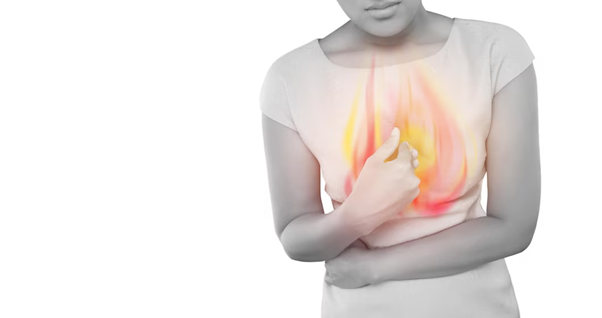Gastroesophageal Reflux Disease, commonly known as GERD, is a digestive disorder that affects the lower esophageal sphincter (LES), a muscular ring separating the esophagus from the stomach. When the LES weakens or relaxes inappropriately, stomach acid and contents flow back into the esophagus, causing discomfort and a range of symptoms.
In this blog, we will explore GERD in detail, including its symptoms, underlying causes, methods of diagnosis, and available treatment options.
GERD Symptoms
GERD often presents with a variety of symptoms, which can vary in intensity. The most common symptom is heartburn, characterized by a burning sensation behind the breastbone that can radiate up into the neck and throat. Other frequently reported symptoms include:
- Regurgitation
- Chronic cough
- Hoarseness
- Difficulty swallowing
- Sensation of a lump in the throat
- Chest pain
It is essential to note that GERD symptoms can vary among individuals, and some may experience nighttime symptoms, affecting their quality of sleep.
Causes of GERD
The primary cause of GERD is the weakening or malfunctioning of the lower esophageal sphincter (LES), which typically acts as a one-way valve to allow food into the stomach and prevent the backflow of stomach contents.
Several factors can contribute to LES dysfunction and the development of GERD:
Hiatal Hernia: A condition in which a portion of the stomach protrudes into the chest through an opening in the diaphragm (hiatal hernia) can disrupt LES function.
Obesity: Excess body weight, particularly around the abdomen, can increase abdominal pressure, leading to acid reflux.
Pregnancy: Hormonal changes and increased abdominal pressure during pregnancy can promote GERD symptoms.
Certain Foods and Lifestyle Habits: Consuming large meals, fatty or spicy foods, caffeine, alcohol, and smoking can trigger or worsen GERD symptoms.
Delayed Stomach Emptying: Conditions such as gastroparesis, where the stomach takes longer to empty its contents, can contribute to acid reflux.
Connective Tissue Disorders: Conditions like scleroderma or systemic lupus erythematosus (SLE) can affect esophageal function, increasing the risk of GERD.
Age: Older adults are more susceptible to GERD due to weakened muscle tone and changes in the esophagus.
Diagnosis of GERD
Diagnosing GERD typically involves a combination of clinical evaluation, medical history review, and diagnostic tests. These tests may include:
- Endoscopy
- Esophageal pH Monitoring
- Esophageal Manometry
- Barium Swallow
Treatment Options for GERD
The management of GERD aims to alleviate symptoms, prevent complications, and enhance an individual’s overall well-being. Treatment options may include:
Avoiding trigger foods, consuming smaller meals, and refraining from lying down immediately after eating can help reduce symptoms.
Medications can be used to neutralize or reduce stomach acid.
In cases of severe GERD unresponsive to medications or when complications arise, surgical procedures such as fundoplication or LINX device placement may be recommended to strengthen the LES.
Complications of Untreated GERD
Esophagitis: Inflammation and irritation of the esophagus lining.
Esophageal Stricture: Narrowing of the esophagus due to chronic inflammation.
Barrett’s Esophagus: Changes in the esophageal lining, increasing the risk of esophageal cancer.
Respiratory Issues: Aspiration of stomach contents into the lungs can cause chronic cough, asthma, or pneumonia.
GERD is a prevalent digestive disorder that can significantly impact an individual’s daily life. Timely diagnosis and appropriate management, including lifestyle adjustments, medications, or surgery, can effectively control symptoms and prevent complications.


